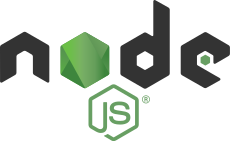Node.js¶
Introduction¶
Warning
Node.js scripts belong in your Home Directory, not in your DocumentRoot.
Node.js is a server-side JavaScript interpreter. Node.js is commonly used to develop server-based applications, i.e. the scripts bind to a network port.
Versions¶
Release types¶
We provide different releases and apply security updates on a regular basis. Currently, these Node.js versions are available: 6, 8, 9 and 10.
Standard version¶
If you don’t select a certain version, our default will be used. We decided to default to version 8, which is considered to be stable by the developers.
Show available versions¶
Use uberspace tools version list node to show all selectable versions:
[eliza@dolittle ~]$ uberspace tools version list node
- 6
- 8
- 9
- 10
[eliza@dolittle ~]$
Change version¶
You can select the Node.js version with uberspace tools version use node <version>. You can choose between release branches:
[eliza@dolittle ~]$ uberspace tools version use node 6
Selected node version 6
The new configuration is adapted immediately. Patch updates will be applied automatically.
[eliza@dolittle ~]$
[eliza@dolittle ~]$ uberspace tools version use node 10
Selected node version 10
The new configuration is adapted immediately. Patch updates will be applied automatically.
[eliza@dolittle ~]$
Selected version¶
You can check the selected version by executing uberspace tools version show node on the command line:
[eliza@dolittle ~]$ uberspace tools version show node
Using 'node' version: '8
[eliza@dolittle ~]$
Update policy¶
We update all versions on a regular basis. Once the support ends, the branch reaches its end of life (EOL), is no longer supported and will be removed from our servers. Even-numbered versions are long-term support (LTS) versions.
| Branch | State | Supported Until |
|---|---|---|
| 6 | Maintenance LTS | April 2019 |
| 8 | LTS | December 2019 |
| 9 | EOL | June 2018 |
| 10 | LTS | April 2021 |
Connection to webserver¶
In order to make your application accessable from the outside, you need to
connect it to the webserver, using a web backend. Please note
that your application must listen on the IP 0.0.0.0. You can choose any port
between 1024 and 65535.
npm¶
npm, or the node package manager, is used to install and manage additional packages. We have preconfigured npm to install packages to your Home Directory when using the global (-g) option.
Popular software¶
| Name | Kind |
|---|---|
| Ghost | Blog |
| Etherpad Lite | collaborative writing tool |
